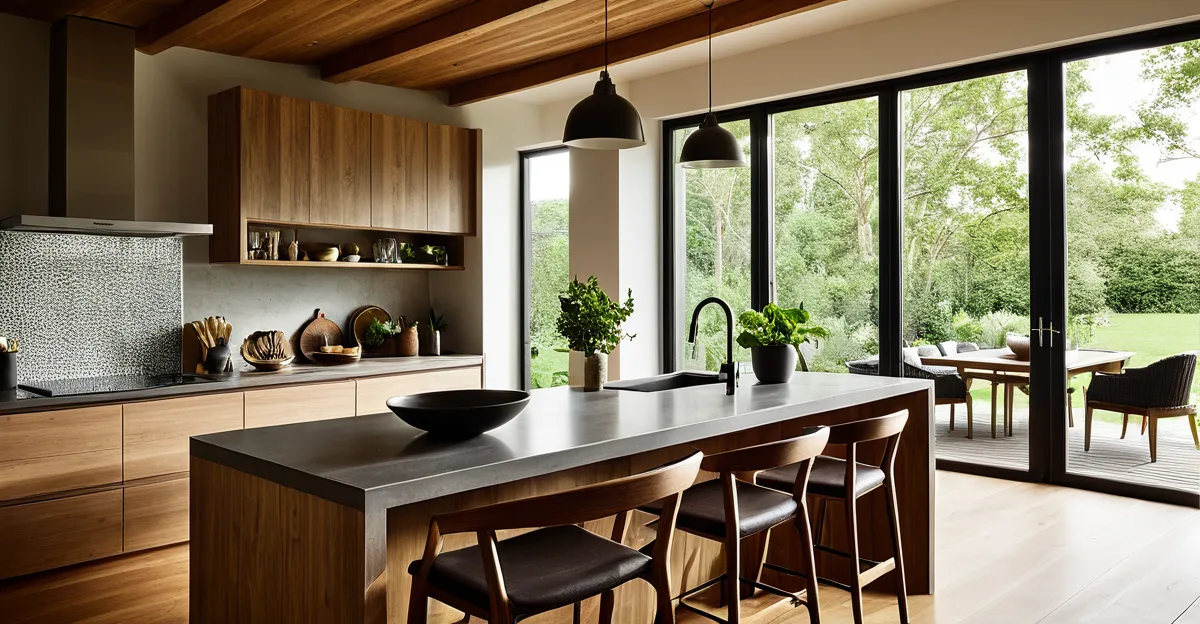Transforming Daily Life Through Sustainable Choices
Sustainable home living is more than a trend—it’s a powerful approach that reshapes daily life by promoting eco-friendly habits with immediate and lasting impact. Integrating sustainability at home delivers benefits that touch on health, comfort, and financial well-being, creating a meaningful upgrade in how we live.
Focusing on key areas like energy, waste, water, and materials helps build a concrete foundation for sustainable habits. For example, by reducing energy consumption with efficient appliances and smarter usage, households experience lower utility bills while reducing their carbon footprint. Similarly, waste reduction through recycling and mindful consumption cuts down landfill contributions and prepares homes for a more circular economy.
This might interest you : How can you choose the right flooring for UK weather conditions?
Incorporating sustainable home living also positively affects personal health. Using non-toxic materials and improving indoor air quality fosters a cleaner environment that boosts comfort and reduces respiratory issues. Moreover, these eco-friendly habits encourage mindful water use, promoting resource conservation that benefits both the environment and household expenses.
Ultimately, the benefits of sustainability extend beyond environmental preservation. Improved daily life is reflected in enhanced physical and mental well-being, financial savings, and a greater sense of responsibility toward future generations. By embracing these eco-friendly habits, individuals create a home environment that supports a healthier, more comfortable, and financially sound lifestyle.
This might interest you : What are the best storage solutions for UK home living?
Practical Steps for Energy Efficiency
Energy efficiency plays a crucial role in sustainable home living, directly influencing both environmental impact and financial well-being. Implementing energy-saving appliances such as LED lighting, Energy Star-rated refrigerators, and smart thermostats can significantly reduce energy use. Smart home solutions allow precise control over heating and cooling, adapting to your daily schedule and outside weather, which minimizes wasted energy.
Maximising natural light through window placement and using insulation improvements like double-glazed windows and wall insulation help maintain a stable indoor temperature. This reduces reliance on artificial heating and cooling, further lowering energy consumption. The benefits of sustainability in this context include noticeable reductions in utility bills and a smaller carbon footprint.
Investing in eco-friendly upgrades not only leads to improved daily life by creating more comfortable home environments but also supports long-term energy conservation goals. These practical energy efficiency steps form a core part of adopting eco-friendly habits that contribute to healthier, more sustainable living spaces.
Reducing Waste at Home
Mastering waste reduction is essential to sustainable home living. Setting up dedicated recycling and composting systems transforms household waste into valuable resources. Recycling involves sorting plastics, paper, metals, and glass to divert them from landfills. Composting organic waste like food scraps and yard debris enriches soil and reduces methane emissions. Together, these eco-friendly habits cut down environmental impact while promoting circular resource use.
Embracing minimalism complements waste reduction by encouraging mindful consumption—buying less, choosing durable, reusable products, and avoiding single-use items. This approach not only limits unnecessary waste but also fosters financial savings and more intentional living.
Practical tips for reducing packaging waste include purchasing in bulk, selecting products with minimal or recyclable packaging, and bringing reusable bags to the store. To reduce food waste, planning meals, storing food properly, and using leftovers creatively help preserve resources and lower household expenses.
By adopting these waste reduction techniques, homeowners experience the benefits of sustainability firsthand through decreased landfill contribution and enhanced environmental stewardship. Combined with other eco-friendly habits, such practices lead to an improved daily life by fostering a cleaner, more organized, and responsible home environment.
Sustainable Water Conservation Techniques
Water conservation is a vital pillar of sustainable home living, offering both immediate and long-term benefits of sustainability. Installing low-flow fixtures such as taps, showerheads, and toilets reduces water consumption significantly without compromising everyday comfort. These eco-friendly upgrades help curb excessive water use, leading to noticeable savings on utility bills while conserving precious natural resources.
Beyond hardware changes, adopting mindful water use habits enhances overall efficiency. Simple actions like turning off taps when not in active use, capturing rainwater for garden irrigation, and using dishwashers or washing machines with full loads contribute to substantial reductions in water waste. Collectively, these eco-friendly habits enable a lower water footprint and reinforce a careful, responsible approach to water management.
Landscaping choices also profoundly affect water conservation. Opting for native or drought-tolerant plants minimizes irrigation needs by aligning with regional climate conditions. Such outdoor sustainable practices complement indoor efforts, promoting an integrated approach to conserving water throughout the home environment.
By embedding these water conservation techniques into daily routines, homeowners benefit from both reduced expenses and positive environmental impacts. This balanced focus on technology and behavior exemplifies how sustainable home living enhances improved daily life through practical, achievable water-saving strategies.






